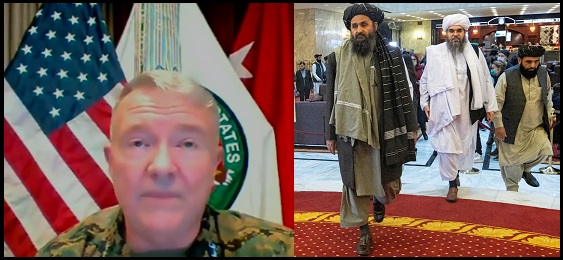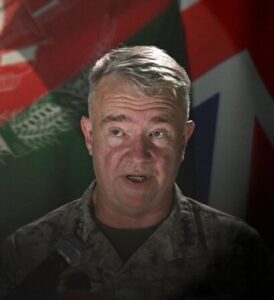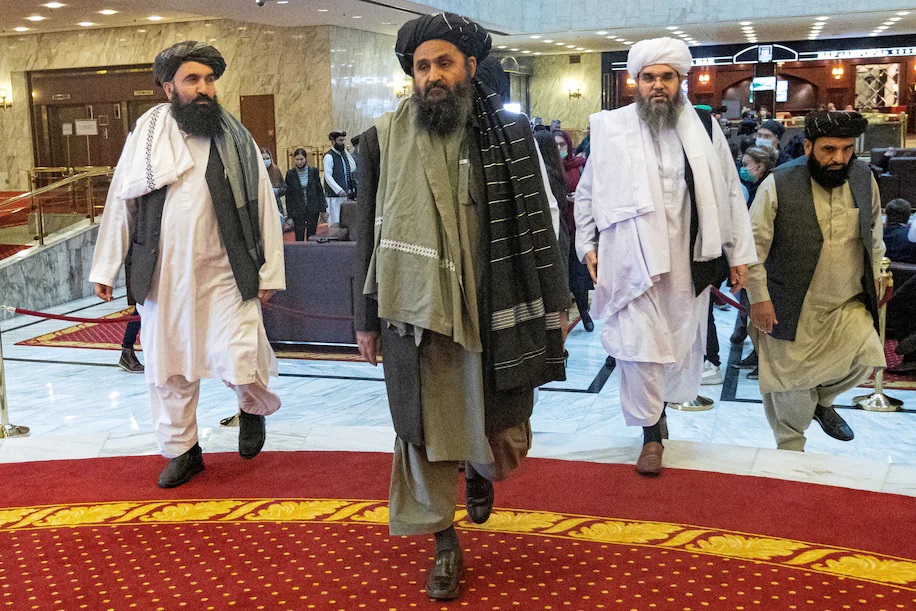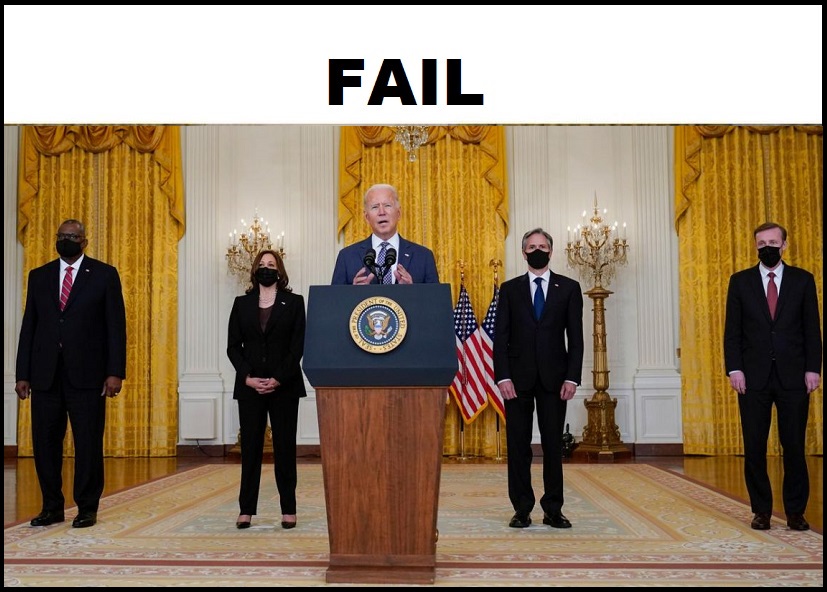WaPo Reporting About The Fall of Kabul Puts the Decision to Hold Airport Only on the Shoulders of CentCom
A very interesting internal dynamic amid U.S. institutions and their media PR networks solidifies around a lengthy Washington Post report about the day Kabul fell to the Taliban. It’s not the story per se’ that provides the clarity, although the details are interesting; but rather the intent of the narrative around the story putting accountability for the lack of Kabul security upon the Pentagon.
Remember, Team #1 (State Dept./CIA) use CNN and the Washington Post; while Team #2 (White House, Pentagon, NSC) do not.
The internal battle amid U.S. government institutions, two teams, in the Afghanistan-crisis blame game, are reflected by this organizational relationship between two U.S. Govt. factions and their media allies. The overarching problem in this part of the blame game is the security situation in Kabul, specifically the lack of security which led to a terrorist attack that killed 13 American service members at the Kabul airport and wounded hundreds more.

According to the Washington Post outline, the Taliban offered to stay out of the capital city until the U.S. military had departed; however, during an in-person meeting between the head of the Taliban, Abdul Ghani Baradar, and U.S. Central Command Commander, Kenneth F McKenzie, the U.S. general told the Taliban to take the city but leave them the airport.
(WaPo) – […] In a hastily arranged in-person meeting, senior U.S. military leaders in Doha — including McKenzie, the commander of U.S. Central Command — spoke with Abdul Ghani Baradar. “We have a problem,” Baradar said, according to the U.S. official. “We have two options to deal with it: You [the United States military] take responsibility for securing Kabul or you have to allow us to do it.”
Throughout the day, Biden had remained resolute in his decision to withdraw all American troops from Afghanistan. The collapse of the Afghan government hadn’t changed his mind. McKenzie, aware of those orders, told Baradar that the U.S. mission was only to evacuate American citizens, Afghan allies and others at risk. The United States, he told Baradar, needed the airport to do that.
On the spot, an understanding was reached, according to two other U.S. officials: The United States could have the airport until Aug. 31. But the Taliban would control the city. (read more)
 To be fair to General McKenzie, at the time of the conversation the Afghanistan government had collapsed.
To be fair to General McKenzie, at the time of the conversation the Afghanistan government had collapsed.
Absent the Afghan army in place, if McKenzie decided to take responsibility to secure the entire city of Kabul, he would have needed to ask the White House for a lot more U.S. troops; or attempt to personally take charge of the sketchy Afghan army. A very tall, perhaps impossible, order. McKenzie decided to let the Taliban take the city.
Ken McKenzie ain’t no Doug MacArthur.
I’m sure this inflection point, and this specific moment of extreme consequence, will loom over the head of General McKenzie for the rest of his life.
However, putting aside the very interesting details of those hours for a moment, what we can see through the prism of the narrative -as engineered by the Washington Post on behalf of their supportive institution (U.S. intel)- is the deflection of blame onto the White House via the Pentagon, specifically CentCom commander Ken McKenzie.
The internal dynamic of the two competing teams inside our dysfunctional government is really quite remarkable to watch play out. ♦Team One consists of the U.S. State Dept (DoS) and the CIA (U.S. Intel). ♦Team Two consists of the White House, Pentagon and National Security Council. Team One uses CNN, CNNi and The Washington Post. Team Two use the traditional alphabets (ABC, CBS, NBC) and NYT/Politico.
Both teams created the mess in Afghanistan on behalf of their constituencies ($). Both teams are looking to avoid scrutiny and place responsibility at the feet of the other team.
In this Washington Post example, the CIA/DoS are blaming Ken McKenzie (the Pentagon), and by extension blaming the White House.
Additionally interesting is the seemingly sympathetic narrative from CNN and WaPo toward the position of the Taliban. Narrated as if they are a misunderstood band of tribal troublemakers who now have this large responsibility to run an entire nation. When you recognize how the State Dept and Intel community operate, you can see exactly where this type of narrative is heading….
It’s like we said earlier, Team One is in alignment with the United Nations objective and now conveying emotional sympathies. Yup, the Taliban are headed toward full legitimate recognition by the U.N. with the ‘we are the world‘ State Department crew leading the way.






Post a Comment